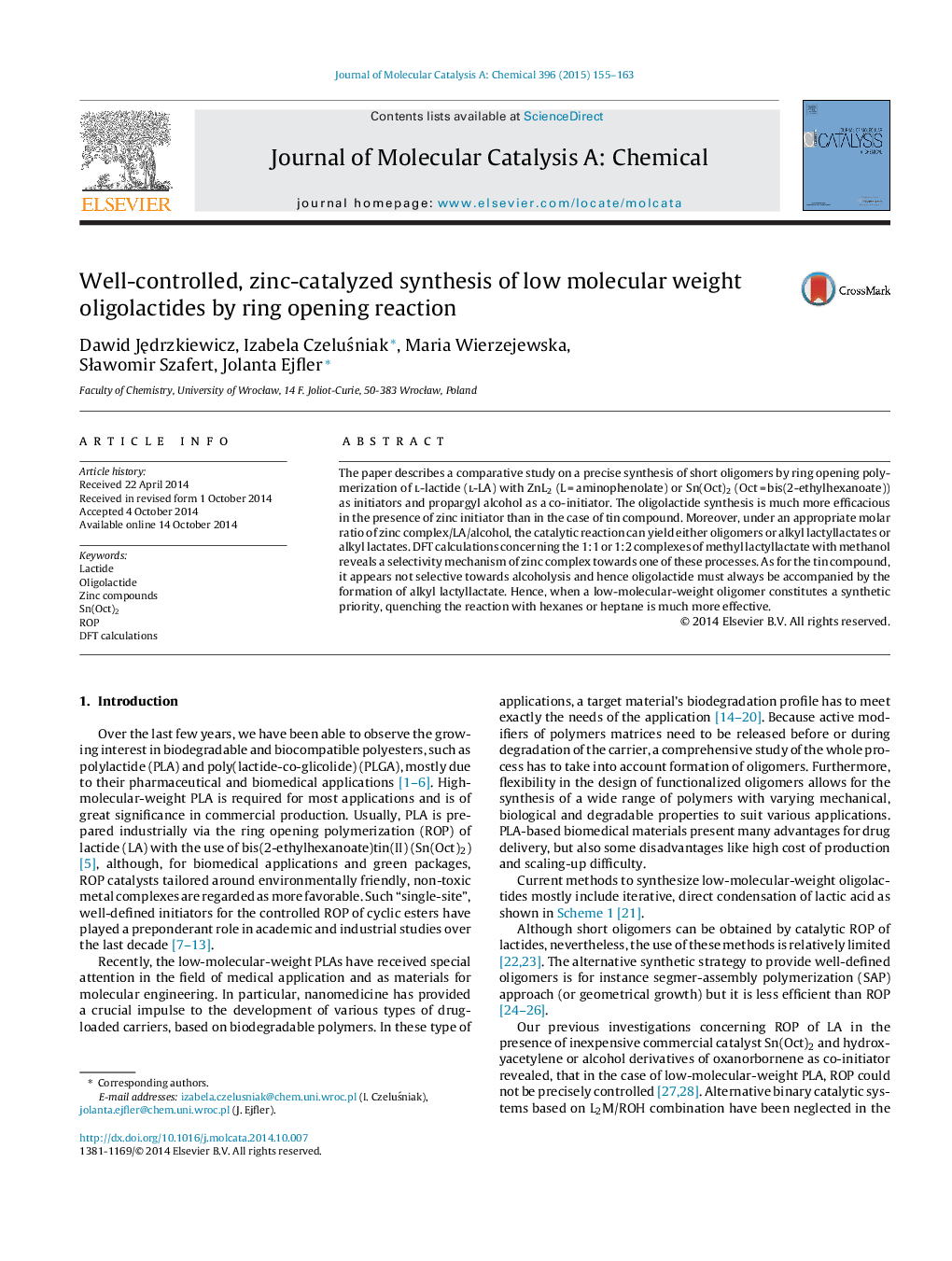| Article ID | Journal | Published Year | Pages | File Type |
|---|---|---|---|---|
| 65262 | Journal of Molecular Catalysis A: Chemical | 2015 | 9 Pages |
•A protocol for synthesis of PLA, alkyl lactyllactates or alkyl lactates is described.•For low-molecular weight oligomers a convenient way of quenching is proposed.•DFT calculations explain selectivity of Zn complex toward polymerization/alcoholysis.
The paper describes a comparative study on a precise synthesis of short oligomers by ring opening polymerization of l-lactide (l-LA) with ZnL2 (L = aminophenolate) or Sn(Oct)2 (Oct = bis(2-ethylhexanoate)) as initiators and propargyl alcohol as a co-initiator. The oligolactide synthesis is much more efficacious in the presence of zinc initiator than in the case of tin compound. Moreover, under an appropriate molar ratio of zinc complex/LA/alcohol, the catalytic reaction can yield either oligomers or alkyl lactyllactates or alkyl lactates. DFT calculations concerning the 1:1 or 1:2 complexes of methyl lactyllactate with methanol reveals a selectivity mechanism of zinc complex towards one of these processes. As for the tin compound, it appears not selective towards alcoholysis and hence oligolactide must always be accompanied by the formation of alkyl lactyllactate. Hence, when a low-molecular-weight oligomer constitutes a synthetic priority, quenching the reaction with hexanes or heptane is much more effective.
Graphical abstractFigure optionsDownload full-size imageDownload high-quality image (74 K)Download as PowerPoint slide
